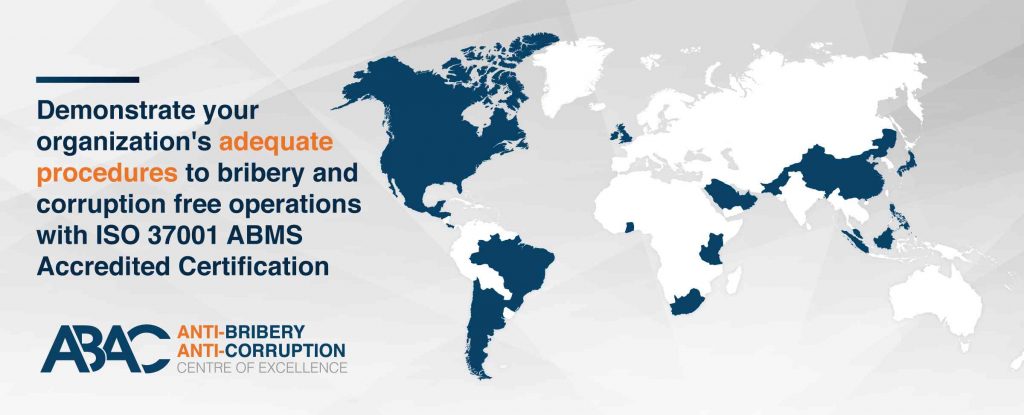The global commodity giant Glencore has taken a major hit, as it pleaded guilty to violating the Foreign Corrupt Practices Act (FCPA) and accepted a hefty fine of over $1.1 billion. The plea deal is the result of investigations conducted by authorities in the United States, the United Kingdom, and Brazil into the company’s price manipulation scheme. The outcome is an example of the consequences companies face when they fail to meet ethical standards. These investigations and plea deals serve as a reminder to corporations that engaging in corrupt practices can come at a high cost, both in financial and reputational terms. The Glencore scandal also underscores the importance of maintaining transparency and upholding ethical values in the business world.
Glencore’s Decade-Long Scheme of Corrupt Payments and Bribes
Over the past ten years, Glencore, the largest commodity trader globally, has faced a series of scandals and investigations. The company, headquartered in Switzerland, has been investigated for alleged money laundering and corruption by the US Department of Justice in Nigeria, Venezuela, and the DRC since 2007. Recently, the UK’s Serious Fraud Office (SFO) has initiated a separate investigation, further adding to the company’s problems. A 2019 report by Bloomberg indicated that the SFO was planning to conduct a formal bribery investigation into Glencore, one of the world’s largest commodity trading firms. The investigation focused on Glencore’s dealings with the leader of the Democratic Republic of Congo (DRC) and Israeli billionaire Dan Gertler, both of whom were suspected of engaging in corrupt practices. The SFO has since launched an investigation into the matter.
Gertler has been involved in business dealings in the Democratic Republic of Congo for almost 20 years, generating both significant profits and controversy. Conflict has long plagued the region, and Gertler has been identified as a key player in natural resource deals. In 2017, the Panama Papers investigation exposed Glencore’s secret loans of millions of dollars to Gertler in exchange for his assistance in securing a mining agreement in the DRC.
While the company’s history is shadowed by controversy, its operations continue to be impressive and expansive. With over 50 countries in which it operates, Glencore is a fundamental player in the mining industry. Glencore’s impressive mining operation spans across numerous countries, extracting precious metals like gold, silver, and platinum, as well as metals commonly used in constructions such as nickel, iron, and aluminum. Founded in 1974 by Marc Rich, a commodities trader notorious for tax evasion and trading with foreign enemies, the company has been associated with illegal activity in the past. Rich was even listed as the FBI’s most-wanted man, but he received a controversial pardon from Bill Clinton in 2001.
Unalterable Consequences
Glencore has reportedly reached a settlement to pay $1.1 billion to resolve investigations by the US government regarding violations of the Foreign Corrupt Practices Act and a commodity price manipulation scheme. This has had a devastating impact on the company’s reputation as it recently pleaded guilty to a long-running scheme to manipulate fuel oil prices at two of the busiest US commercial shipping ports. Consequently, the company has been ordered to pay a criminal fine of over $428 million, as well as forfeiture and disgorgement of more than $272 million. Apart from the significant legal penalties, Glencore will also have to hire an independent compliance monitor for the next three years.
The Glencore case serves as a stark reminder that no company is above the law, and corporations must be held accountable for their actions. The incident should serve as a cautionary tale to other multinational companies that corruption and fraud will not be tolerated in the international marketplace. The repercussions of the case were significant, including a drop in share prices and damage to the company’s reputation.
This highlights the importance for businesses operating in high-risk markets to implement robust anti-bribery and anti-corruption measures, such as those outlined in the ISO 37001:2016 Anti-Bribery Management System standard. The Glencore case is a powerful reminder of the need for ethical business practices and the consequences that can result from failing to implement them.
ISO 37001: A Solution for Glencore’s Bribery Case?
The ISO 37001:2016 standard provides a framework for businesses to prevent, detect, and respond to bribery and corruption. It covers a range of areas, including risk assessment, due diligence, internal controls, and employee training. Implementing ISO 37001 can help businesses to avoid legal and financial consequences, protect their reputation, and ensure ethical business practices. Here’s how ISO 37001 could have helped in Glencore’s Case:
Prevention of Bribery and Corruption
ISO 37001 provides a framework for implementing an effective anti-bribery management system that helps organizations prevent bribery and corruption. In Glencore’s case, an ISO 37001 certification could have helped the company establish clear policies and procedures to prevent corrupt practices and ensure compliance with anti-bribery laws.
Due Diligence on Business Partners
The standard requires due diligence on third-party business partners, such as suppliers, contractors, and agents, to identify and prevent potential bribery and corruption risks. By conducting thorough due diligence on its partners, Glencore could have identified and mitigated the risk of working with partners involved in corrupt practices.
Internal Controls and Audits
ISO 37001 requires implementing internal controls to monitor and detect organizational bribery and corruption. These internal controls are regularly audited to ensure their effectiveness. In Glencore’s case, an effective internal control system could have detected the company’s corrupt practices earlier, and audits could have provided an opportunity to identify and remedy issues.
Training and Communication
The standard requires that organizations provide adequate training and communication to their employees and stakeholders on anti-bribery policies and procedures. Proper training and communication could have ensured that Glencore employees were aware of the company’s commitment to ethical practices and the consequences of non-compliance.
Independent Certification
ISO 37001 provides an opportunity for independent certification by accredited certification bodies. Certification demonstrates that an organization has implemented an effective anti-bribery management system, which can increase stakeholder trust, improve reputation, and reduce the risk of legal and financial consequences.
Why ISO 37001 is Essential: Proving Your Business is Ethical
In today’s global marketplace, ensuring ethical practices and compliance with anti-bribery and anti-corruption regulations is essential. Here are some reasons why ISO 37001, an international standard for anti-bribery management systems, is important for businesses:
Proving Your Business is Ethical
Implementing an ISO 37001-compliant anti-bribery management system helps customers, stakeholders, and investors demonstrate that your business is committed to ethical practices and compliance with anti-bribery and anti-corruption regulations. It provides a framework for identifying and managing bribery risks and monitoring and measuring the effectiveness of your anti-bribery efforts.
Improved Business Reputation:
An ISO 37001 certification demonstrates that a business has an effective ABMS in place and adheres to ethical practices, which improves its reputation among stakeholders. It assures clients, partners, and investors that the business is committed to preventing corruption and bribery.
Enhanced Internal Processes:
ISO 37001 encourages businesses to establish a robust ABMS that involves all levels of the organization, from the board of directors to employees. The certification process involves a gap analysis, highlighting weaknesses in the current system, and enabling businesses to improve their internal processes and procedures to prevent corruption and bribery.
Third-Party Due Diligence:
ISO 37001 requires businesses to perform due diligence on third-party partners, including suppliers, contractors, and agents, to ensure they have effective ABMS in place. This process helps businesses mitigate the risk of exposure to bribery and corruption that may occur in their supply chain.
Compliance with International Frameworks
Compliance with ISO 37001 ensures that your business adheres to global compliance, business ethics, anti-bribery, and anti-corruption frameworks such as the UK Bribery Act, the US Department of Justice’s Evaluation of Corporate Compliance Programs Guidance, and the Malaysian Anti-Corruption Commission. This aligns your business with international standards, which can prevent costly legal troubles and reputational harm.
ABAC™ Center of Excellence: Building Trust and Ensuring Compliance
ABAC™ Center of Excellence is a leading ISO certification body, offering a comprehensive suite of services and solutions designed to educate, equip, and support businesses worldwide in the areas of risk and performance assessments, systems improvement, and standards certification.
ISO Standards Certification
ABAC™ programs provide internationally recognized certification and training in ISO standards such as ISO 37301 Compliance Management Systems, ISO 31000 Risk Management Systems, and ISO 37001 Anti-Bribery Management Systems. This ensures that organizations remain compliant with these standards and builds trust in the global marketplace.
Accreditation and Expertise
ABAC™’s ISO 37001 Certification services are accredited by the United Kingdom Accreditation Service (UKAS CB number: 10613), making it the leading certification body specializing in anti-bribery management. ABAC operates through its global network of certified ethics and compliance professionals, qualified auditors, financial and corporate investigators, certified fraud examiners, forensic analysts, and accountants. This ensures that businesses receive expert support and guidance throughout the certification process.
Free Assessment and Gap Analysis
ABAC™ offers a free Highest Ethical Business Assessment (HEBA) to evaluate your current corporate compliance program. The HEBA assesses whether your program meets worldwide compliance, business ethics, anti-bribery, and anti-corruption frameworks. ABAC™ experts can provide a complimentary gap analysis of your compliance program to evaluate if it meets “adequate procedures” requirements under the UK Bribery Act, DOJ’s Evaluation of Corporate Compliance Programs Guidance, and Malaysian Anti-Corruption Commission.
Ready to take your organization’s anti-bribery and corruption measures to the next level? Get certified with ABAC™’s ISO 37001 Anti-Bribery Management System certification, the gold standard for demonstrating your commitment to ethical business practices. Contact us today to learn more about our certification services and how we can help safeguard your business from corruption and reputational damage. Build trust, ensure compliance, and stay ahead of the competition with ABAC™.




